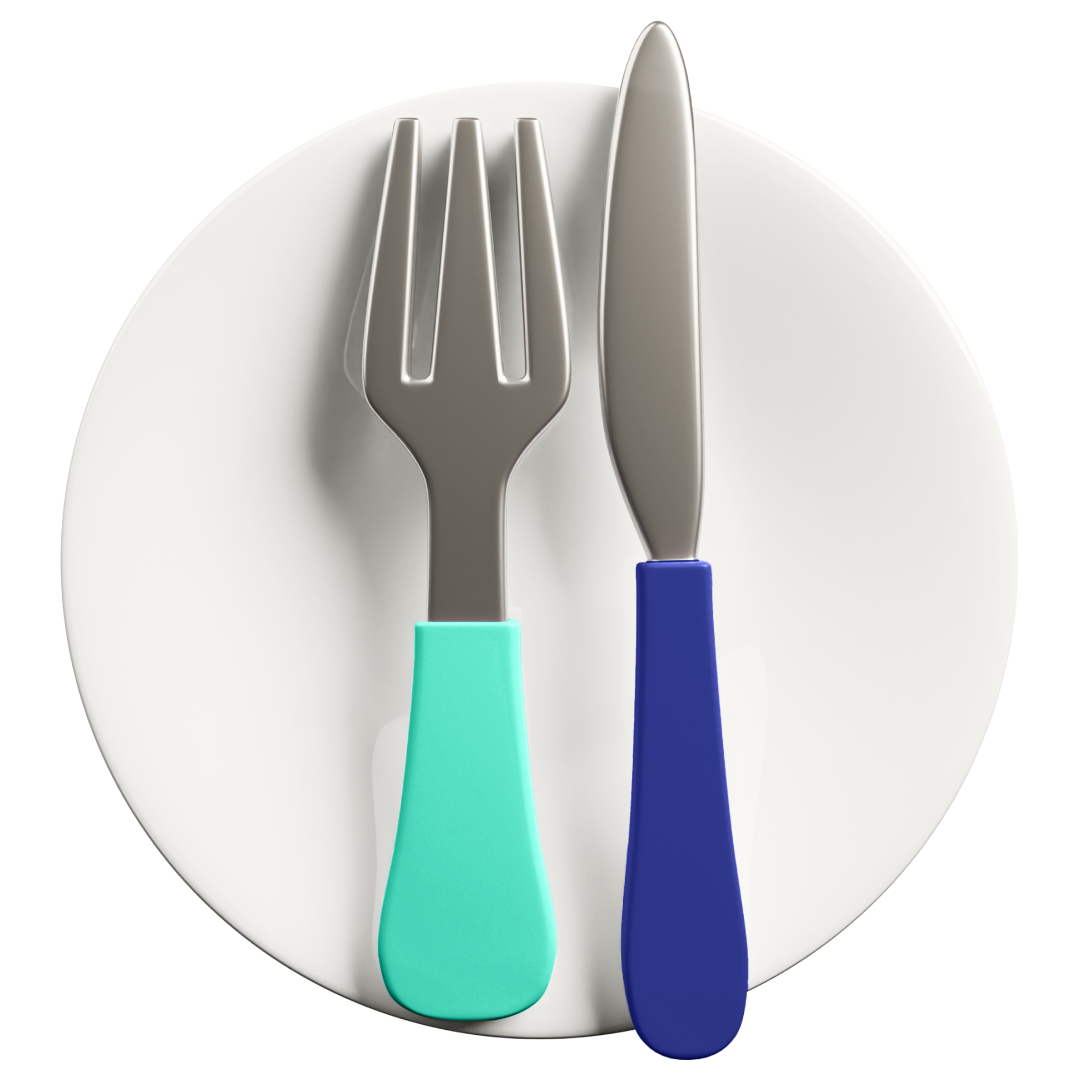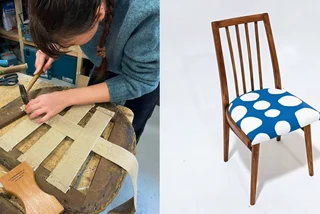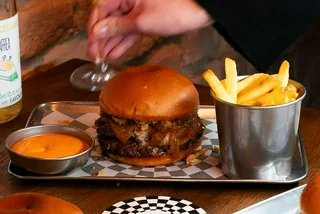Lee Chang grew up in Colorado but has Taiwanese roots. He has fond childhood memories of night markets in Taipei, the intense aromas and flavors of stinky tofu and oyster omelette, casual dishes that always hit the spot.
Nyoman Purnata was raised on Lembongan, a tiny island off the coast of Bali. When the family needed coconuts, his father would shimmy up a tree and knock a few loose. He has memories of being wrapped snug around his mother’s body as she waded into the sea to grab an octopus for dinner.
Chang and Purnata met in the kitchen of another Prague restaurant and soon decided to strike out on their own. Friends for 13 years, the duo’s shared decade-in-the-making vision for QQ Asian Kitchen (a Prague restaurant they have co-owned since 2017) is inspired by their collective homelands, travels, and culinary experiences.
Prior to shut down, the restaurant had relocated from its original space in Výtoň to the Mosaic House Hotel. Reconstruction of the new space began in January of 2020. It took three months to complete; in March they celebrated the new restaurant with a menu-tasting for Mosaic's employees.
But the very next day after the unofficial opening party, the lockdown went into effect. They were open exactly one day before being closed down by the Czech government-mandated restaurant closures.
That kind of timing might have meant the end for many new ventures. But Purnata and Chang had already come this far. They used the downtime to experiment and perfect their dishes. They adjusted to the fact that everything was take-out, by offering food that traveled well.
Now QQ returns to in-person dining with its familiar blend of the innovative and comforting, a modern interpretation of Asian cuisine that has garnered Chang and Purnata a sizable fan base in Prague that likely helped them survive the challenging lockdown period with regulars helping them stay afloat.
"We started seeing names pop up on the delivery tablet, names we recognized. They ordered their favorites and we threw in an extra fortune cookie," said Chang. To keep the orders coming, the duo came up with "Pandemic Specials" like Nasi Champur, an Indonesian spin on Bento.
Those who want to celebrate restaurant reopenings and support local kitchens should make a reservation today and journey through a menu that never fails to surprise.
The first thing to note, though, is that not all of the dishes on the QQ Asian Kitchen menu originate in Asia. Change once had a moving experience with a Po' Boy sandwich in New Orleans and wanted to create something similar. His version, the "Po Bao," comes in a spongy, steamed bun, or bao.
When QQ makes General Tso’s Chicken, it's the way North Americans would expect: rich sauce, and double fried for that perfect texture. Their Asian twist on the local tatarák comes with cassava crackers, rather than the fried bread (topinky). Among the dumplings and potstickers another standout is the QQ Bao Sliders filled with coconut pulled beef, BBQ pork belly, crispy chicken, tempura prawns, or a pumpkin patty.
Mouthfeel is a key component of the QQ dining experience. In fact, the term Q in Taiwanese is used to describe the bouncy stretchy consistency that’s a sought-after quality in Asian food: it's how you can tell a good fish ball from a failed one or know when the rice is perfectly steamed.
Other notable dishes include the Sea Bass Grilled in Banana Leaf served with house made chili compote and sambal matah, a refreshing mixture of lemongrass and chilis. Guests with a reserved palette can enjoy the mellow tones of Beef Rendang, which is not too rich or spicy. Vegan Mapo Tofu is the vegan version of the popular Sichuan dish.
Balinese beer and exquisite cocktails ranging from pink skinny lychee, coconut margarita, or jackfruit sour perfectly begin, accompany, and end your meal.
Despite the impressive mix of influences, all roads lead back to smells and tastes recalled from childhood. Purnata’s family business was making cakes for locals and he recalls waking at dawn to grate coconut or pound paste for curries. The sea salt sponge cake is Balinese recipe that comes from his mother.
Chang learned his craft watching his mother prepare family banquets for twenty or thirty, with all the food coming together in just a day. This history is carried forward in the way he ultimately wants guests to enjoy themselves: it isn’t uncommon to see both owners go from table to table, requesting feedback or inviting diners to join them for after-dinner cocktails.
Speaking of family, Chang describes the new space as a "family casual" setting: children are welcome in this convivial environment, and the kitchen is happy to prepare kid-friendly fare. The spirit of fun is also reflected in the eclectic new decor which both men contributed to, an unpretentious yet chic ambience that complements the array of colors and flavors found on the plate.
The welcoming vibe from the wait staff, not always the case in Prague, is attentive, but down to earth, never rushed or detached. Chang says when they train their staff he stresses the importance of being open and warm, as though entertaining friends in their own home.
Both Chang and Purnata learned to respect food in their mothers' kitchens and that comes through in the QQ Asian Kitchen dining experience. Like Purnata's mother who could retire and take it easy but still loves to make cakes, the underlying purpose for the friends and business partners is simply to make people happy.
This article was written in cooperation with QQ Asian Kitchen. Read more about our partner content policies here.












 Reading time: 4 minutes
Reading time: 4 minutes 


























